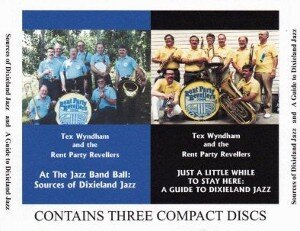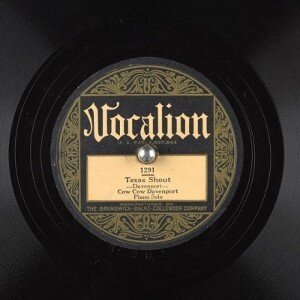 Set forth below is the fifty-sixth “Texas Shout” column. The initial installment of a two-part essay, it first appeared in the November 1994 issue of the West Coast Rag) now known as The Syncopated Times.
Set forth below is the fifty-sixth “Texas Shout” column. The initial installment of a two-part essay, it first appeared in the November 1994 issue of the West Coast Rag) now known as The Syncopated Times.
I grew up, and went to college, only about 120 miles from Times Square. However, in those years I had neither much money nor convenient access to transportation, so a trip to New York City was a big deal for me. As a result, I only once attended Eddie Condon’s nightclub during his lifetime.
I had a ball. It was one of the few occasions, up until then, that I saw big-name Dixielanders live. The band was great.
To make the evening extra special, I decided to see if the combo would play a request for me. The Condon mob had just released its “Eddie Condon’s Treasury Of Jazz” LP, which included the first commercial version of “Duff Campbell’s Revenge,” a composition by my favorite musician, Turk Murphy. I longed to hear it played live.
I knew that “Duff” was a difficult and unusual tune, and I suspected that the band had learned it just for the recording. So, I thought I should have a second choice ready that would be, I believed, a sure thing.
Thus armed, I approached the stage just as the band was setting up after a break. I asked trombonist Cutty Cutshall, who was sitting at the side of the bandstand, if he would play a request for me.
Cutty readily assented and asked what I wanted to hear. When I mentioned “Duff Campbell’s Revenge,” his face fell. “Gee,” he said, “we read that one off in the studio. I don’t think we’d remember it.”
“O.K.,” I replied, “how’s about playing something by Jelly Roll Morton?” To my amazement, Cutty’s face fell again as he mumbled “Gee, I don’t know. What did he write?”
As I started down the list of standard Jelly tunes, Cutty immediately brightened with recognition. He chose “Wolverine Blues,” spoke briefly to the band and they kicked off the set with a red-hot version that put just the right icing on the cake for me that evening.
That incident was my first exposure to a phenomenon which still catches me off-guard at times. Many Dixieland musicians, even famous full-timers who make a living from the music and have devoted their lives to it, don’t know and don’t particularly want to know who wrote the tunes they play every night.
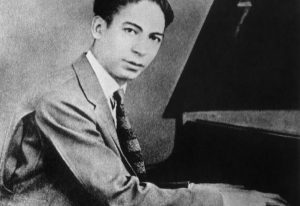
I now understand why this happens. Almost everybody who comes to Dixieland does so by hearing someone else play it, either live or on records. Something in them responds to the music, and they are moved to create it themselves, initially desiring to replicate the sounds that caught their ears.
Thus, their initial focus is upon assimilating the style and repertoire of their favorite jazzmen. To do so, you just need to listen and practice. You don’t need to know anything about the tunes themselves except how to reproduce the notes thereof.
As time passes, anyone getting deeply into Dixieland inevitably settles on numbers that he/she particularly enjoys. Moreover, if a player is doing the right thing, he/she eventually stops replicating others and starts to develop his/her own personal vision of the music. In doing so, he/she will choose certain compositions that seem especially compatible with that vision.
At that point, I would think that the player would naturally take the trouble to find out who wrote the tunes. He/she might do so out of respect for the music itself; after all, without the composers, we wouldn’t have anything to play.
But beyond that objective, if you particularly like a certain tune, wouldn’t you want to know who wrote it, on the assumption that this composer may well have written other things you’d particularly like for which you could be on the lookout? It doesn’t happen that way very much, a fact which continually surprises me.
Possibly because I am a pianist and am seeing things from a pianist’s perspective, or possibly because most popular tunes are published in vocal/piano editions, I think that pianists are somewhat more finely attuned to focusing on composers than the average Dixielander. Still, I can’t help but notice how securely many musicians are locked into the records. That is to say, they associate a title primarily with the artist who recorded it and are inclined to believe, if that artist has any reputation at all as a composer, that he probably wrote it as well.
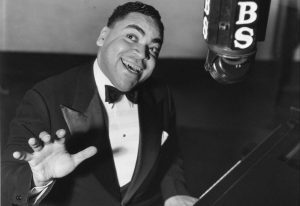
For example, Fats Waller made a particularly well-remembered 78 of “I’m Gonna Sit Right Down And Write Myself A Letter” (1935), lyric by Joe Young, music by Fred E. Ahlert. If I had a nickel for every time I’ve heard some bandleader announce Fats as the composer of that piece, I would have retired years earlier than I did. Moreover, Ahlert was not exactly an unknown composer, having had a long and productive career on Tin Pan Alley that included the creation of several other standards such as “I’ll Get By,” “Walkin’ My Baby Back Home,” “Where The Blue Of The Night” and “The Moon Was Yellow.”
(As an aside, I often see misattribution of composer credit to Louis Armstrong, but for a different reason. There are those who see “Armstrong” listed as a composer and assume that Louis is meant. Actually, Satchmo did not compose all that many selections – though his wonderful “Someday You’ll Be Sorry” and “Swing That Music” are standards, and it has been said that he is the actual composer of “(I Wish I Could Shimmy Like My) Sister Kate.”
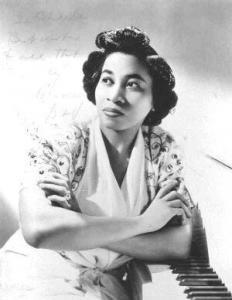
However, his second wife, Lillian Hardin Armstrong, was one of the all-time great composers of Dixieland tunes. If you see “Armstrong” as a composer credit, there’s probably a better-than-average chance that Lil, not Louis, is intended.)
Speaking of Fats, and of misattribution of Fats as a composer, jazz folklore is filled with tales of Waller’s raising the price of cab fare, a meal or drink by selling melodies on the spur of the moment to various publishers (allegedly sometimes re-selling themes he’d already peddled elsewhere). No doubt certain of these got reworked by the publishers’ house arrangers or composers into songs that may or may not have had Fats’ name on them when they appeared in print.
Laurie Wright’s authoritative bio-discography of Waller, “Fats” In Fact (1992, Storyville Publications) contains a full page of titles that, at one time or another, someone has asserted to be composed by Fats. Wright cites every such example known to him, including some which (to use his words) seem “wholly fanciful.”
One of those, the one I believe I’ve seen attributed to Waller more than any other, is “I Can’t Give You Anything But Love.” Ernie Anderson, who knew Fats well, has written that Fats sold it to composer Jimmy McHugh for quick cash. Franz Jackson has been reported to have said the same thing about “On The Sunny Side Of The Street,” which came along in 1930, two years after “I Can’t ….” At any rate, McHugh is the composer on the song sheet for both numbers.
In his 1992 volume, Black and Blue; The Life And Lyrics Of Andy Razaf, biographer Barry Singer attempted to nail down the authorship of “I Can’t …,” assessing the available evidence and ultimately concluding that “It is impossible to say.” Let me preface this discussion by saying that I have no new discoveries regarding that tune or “Sunny Side.”
In show business, anything is possible. However, though it may be presumptuous to question someone close to Fats (like Anderson), I’m inclined to take such claims with a grain of salt, and here’s why.
Let’s begin by noting that, though McHugh was a professional manager for Mills Music during the 1920s, he wasn’t some unknown office boy who might have put his name on something in the files. He was one of the top songwriters of his era, having as early as 1924 composed songs that are still played today.
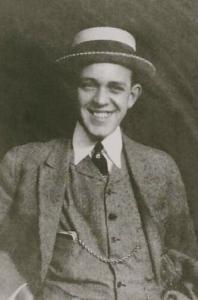
We all know his famous ballads “Don’t Blame Me” and “I’m In The Mood For Love.” Dixielanders regularly choose to jam on such McHugh evergreens as “When My Sugar Walks Down The Street,” “Blue Again,” “Exactly Like You” and “I Can’t Believe That You’re In Love With Me.” Revivalist combos occasionally assay such McHugh swingers as “Baltimore,” “Everything Is Hotsy Totsy Now” and “The Lonesomest Girl In Town.” In sum, McHugh was an established, highly successful composer who had no need to buy or otherwise appropriate someone else’s tunes.
Further, “I Can’t Give You Anything But Love” was the biggest hit from the score of “Blackbirds Of 1928,” for which McHugh wrote all the original tunes. As far as I know, more pieces from that show are still played by Dixieland bands than any other musical stage production of the twenties – seven of them to be exact. In addition to “I Can’t …,” I know of fairly recent recordings of “Diga Diga Doo,” “Doin’ The New Low Down,” “Here Comes My Blackbird,” “Baby,” “I Must Have That Man” and “Magnolia’s Wedding Day.”
All of these songs swing like mad and were written at the same time. They are clearly cut from the same musical cloth, seemingly the work of the same musical mind, so it seems unlikely to me that one of them is a ringer. Yet, to my knowledge, no one has ever suggested that McHugh is not the composer of the other six.
Finally, although Fats was certainly a master practitioner thereof, he was not the only composer of his day who was gifted at writing catchy pops with simple rhythmically-oriented melodies that continue to attract older-style jazzmen. Walter Donaldson, for example, is my pick for the composer who, during the ten years that comprised the twenties, probably wrote more tunes still played today by Dixieland bands than anyone else. Also, you won’t get through a Dixieland festival without hearing a number of works by Irving Berlin.
McHugh belongs in that category. In fact, though he was white, it was surely his well-known (in the industry) knack for writing the kind of number that would fit the styles of the Black entertainers who made up the cast of “Blackbirds Of 1928″ that got him the assignment to compose the show’s music. In fact, Fats himself later waxed, in fondly recalled renditions, two McHughs not yet mentioned, “I’ve Got My Fingers Crossed” and “Spreading Rhythm Around,” but no one is claiming Fats wrote those.
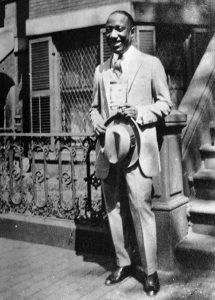
Similarly, I’ve heard it said that James P. Johnson and not George Gershwin wrote “Liza” (from Gershwin’s 1929 musical “Show Girl”). Perhaps that rumor has its roots in the fact that stride pianists like to play “Liza,” finding its open melody and chord structure particularly compatible for typical stride variations. Of course, there are lots of tunes that lay well for stride piano that weren’t written by a strideman.
I think the “Liza” claim is nonsense for two reasons. First, by 1929, Gershwin was one of Broadway’s most celebrated figures; like McHugh, he had little to gain and a lot to lose by stealing material. Second, of all the great Broadway names, no one had more affinity for older-style jazz than Gershwin, who loved our music. His “Oh! Lady Be Good!” and “Summertime” are now Dixieland jam standards, while his “I Got Rhythm” (along with tunes based on the chord pattern thereof) is virtually the national anthem of swing jam sessions. He had plenty of ability to write our kind of music.
In short, I am highly skeptical of such assertions, particularly when they are made after all of the principals have died. I can’t prove anything either way, but until someone can, I’ll go with the published song sheet as far as the McHughs and Gershwins of the world are concerned.
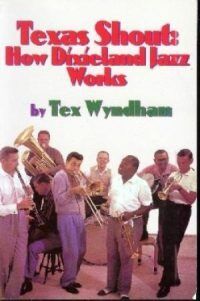 Want to read ahead? Buy the book!
Want to read ahead? Buy the book!
The full run of “Texas Shout” has been collected into a lavishly illustrated trade paperback entitled Texas Shout: How Dixieland Jazz Works. This book is available @ $20.00 plus $2.95 shipping from Tex Wyndham, On request, Tex will autograph the book and add a personalized note (be sure to tell him to whom the note should be addressed).
Tex Wyndham’s 3 CD Guide to Dixieland with music and commentary is available for $20 plus $2.95 shipping. The separate CD, A History of Ragtime: Tex Wyndham Live At Santa Rosa, is available for $13.00 plus $2.00 shipping. On request, Tex will autograph the inner sleeve and add a personalized note (be sure to tell him to whom the note should be addressed).
Send payment to Tex Wyndham, P.O. Box 831, Mendenhall, PA 19357, Phone (610) 388-6330.
Note: All links, pictures, videos or graphics accompanying the Shouts were added at the discretion of the Syncopated Times editorial staff. They did not accompany the original columns and do not necessarily reflect the opinion of Tex Wyndham.
From roughly 1970-2010, Tex Wyndham was: (1) one of the best-known revivalist Dixieland jazz musicians in the US, as cornetist, pianist and bandleader, (2) one of the best-known ragtime pianists in the US, and (3) one of the most respected critics in the US of Dixieland jazz, ragtime, and related music. He is the only person about whom all three of those statements can be made.






